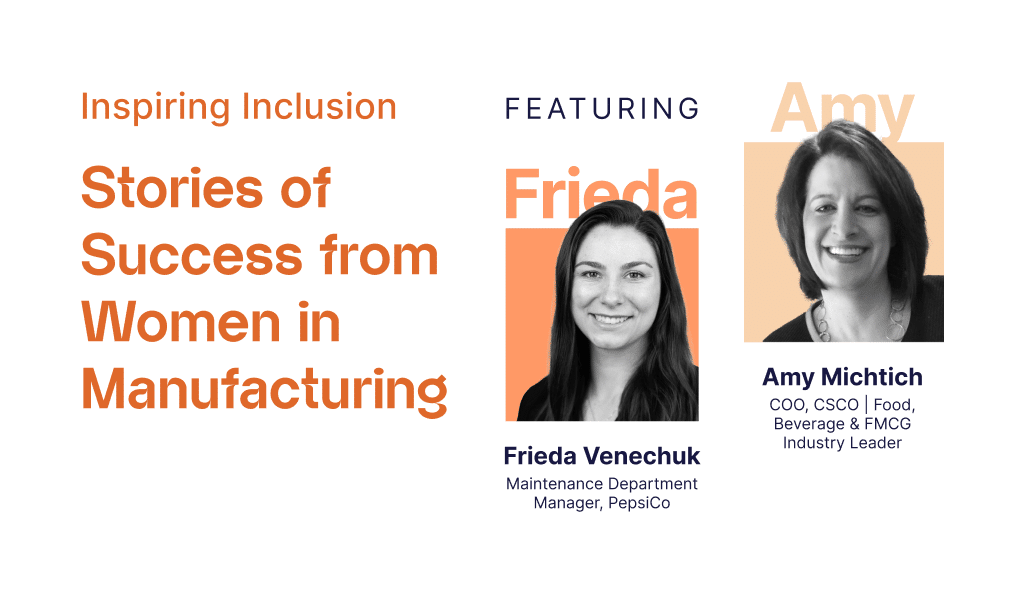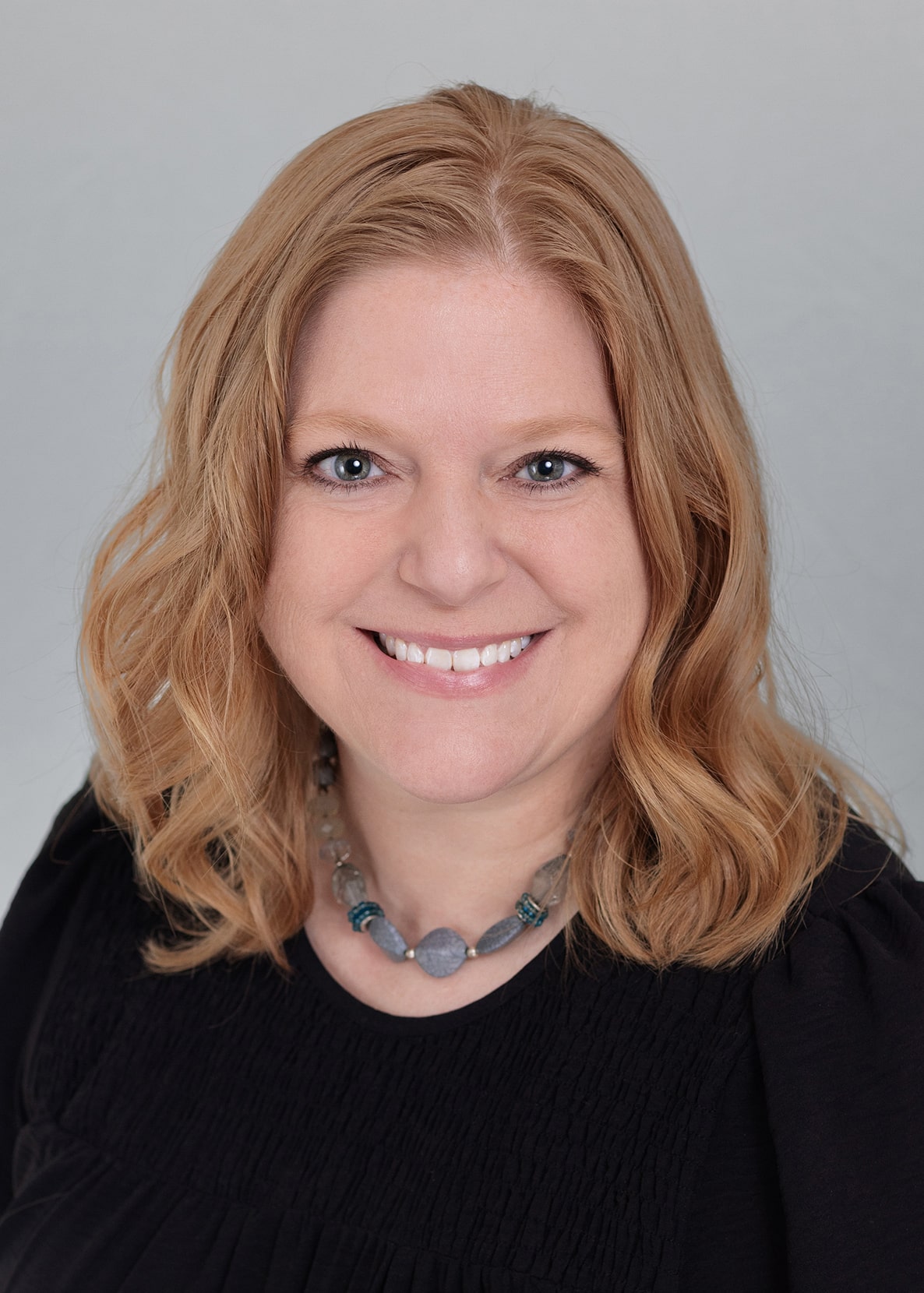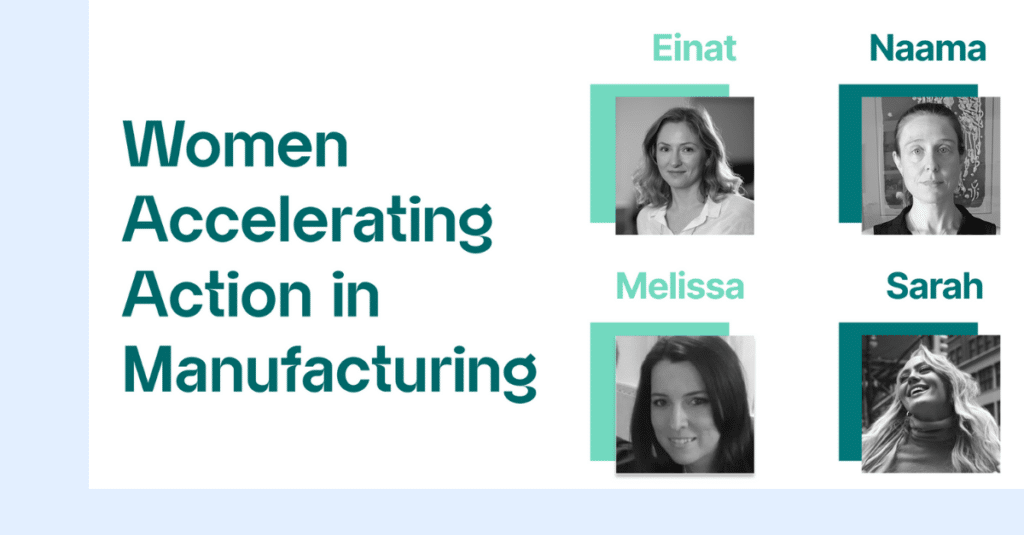
The theme of International Women’s Day 2024 is #InspireInclusion. We talked to Amy Michtich and Frieda Venechuk about their career paths and what inclusion looks like to them.
When Amy Michtich earned her second promotion in plant leadership at Pepsi Bottling Group, she remembers telling her peer that she felt like she only got it because she was a woman.
“Get that out of your mouth,” he told her. “You got promoted because you deliver damn good results.”
It’s true. Amy does deliver damn good results. Throughout her career, working for such giants as PepsiCo, Molson Coors, The Scott’s Miracle-Gro Company, and 8th Avenue Food & Provisions, Amy held numerous roles of increasing responsibility. She managed plant floors, headed up integrated supply chains, ran day-to-day business operations, and focused on developing talent and teams.
So how did Amy work her way up to the C-suite in manufacturing?
College and Co-Ops
“It’s funny that I ended up in manufacturing,” Amy admits. “I came from a family who worked in the automotive industry. My parents did not have college degrees. My goal was to get into a university and not spend my life in a factory.”
As an only child, Amy mainly kept to herself. She read a lot and liked figuring out how things worked. A good friend of her dad was a plant engineer and liked to build drag race cars as a hobby. Amy liked observing the process, and started learning about the different tools, their uses, and handing them over as he worked.
Her dad’s friend also encouraged Amy to pursue a college education. “He took me on several college visits,” she remembers. “He wanted to ensure I was exposed to the opportunities available to me. He took me to Purdue, where I eventually applied and was accepted into the College of Engineering. My goal was to become an aeronautical engineer.”
School was fun. Maybe a little too much fun, Amy confesses with a laugh. But, the challenges that came with newfound freedom and an eventual switch of her major taught Amy valuable lessons about resiliency and finding a new path.
“I did a co-op with General Motors, which is a program where I alternated between academic semesters and then semesters of full-time, paid work, ” Amy shares. “Interestingly, as soon as I started my co-op work, I saw a direct connection between what I was learning and what I was doing on-site. Suddenly, manufacturing, the thing I had been running away from all this time, energized me.”
Life, Leadership, and Role Models in Manufacturing
Early on in her career, Amy began managing people and taking leadership roles. She took a “fail forward” approach to work – willing to take calculated risks, identify opportunities, and build her team’s capability to do the same. Her confidence kept building.
Still, she was often the lone woman in the room or on the plant floor. “Working rotating shifts is tough on family life, and childcare is expensive,” Amy says. “Lots of women leave manufacturing to get married and have kids.”
Thankfully, this is becoming less of an issue – although many women are still not coming up through traditional manufacturing routes. “There tend to be other pathways to more senior roles in manufacturing,” she says. But she notes there are also more supports for women in manufacturing, no matter how they got there.
“Groups like Women in Manufacturing and AWESOME didn’t exist when I started my career in the early 1990s,” Amy says. “These groups are great for development and networking. I think they can also provide role models – although it’s important in my view to choose role models based on who you want to be as a person, and not necessarily on whether or not they look like you.”
“In my day, there weren’t many female role models, and those I knew had to make many sacrifices to get where they were. Even though I admired them, I also wasn’t always sure I wanted to be like them. Now, I think there are more opportunities for women to see various role models and understand that we don’t all have to be on the same path. What works for me may not work for you, and that’s okay. It’s all about balancing what is important to you and your family.”
Thoughts on Diversity and Inclusion
Many manufacturers are still struggling to figure out how to increase diversity in their companies. In Amy’s opinion, solving this problem might require a broader approach. “I think the issue is tied to an overall challenge in attracting people into the industry. Let’s focus on recruiting people at the start of their careers. We can show them that manufacturing provides opportunities for them to grow professionally. There are ways manufacturers can (and already are) working to evolve the way work is done on the plant floor. Making sure we highlight this evolution of manufacturing work will help us recruit people, and in particular, women, who are concerned about the balance between work and family life. ”
At the end of the day, the power of diversity and inclusion is “about surrounding myself with people who think differently than me,” Amy says. “Maybe we have similar experiences, but I want people around me with different styles, approaches, and perspectives. That is the fun of manufacturing: the breadth of what we get to do, the hats we get to wear, and the skills we develop that we’ve never had before.”
Frieda’s Story
Like Amy, Frieda’s career in manufacturing had its roots in her childhood.
“I was a strong student in math and science,” Frieda shares. “Teachers and adults always told me I’d make a great engineer and encouraged me in that direction.”
So off to Purdue University she went. During her freshman year, she explored all the different types of engineering available to her. “I took a seminar on industrial engineering,” she remembers. “I thought it was so cool. I’m all about making things more efficient in my life and planning things out. When I realized I could make a career out of that, it was one of the best days ever!”
The dynamic environment of manufacturing also appealed to Frieda. “I love that my work is hands-on, and I’m not boxed into a cubicle. I’m out solving real issues we’re having on the plant floor and getting real-time feedback from it, too.”
From Six to Sixty
To date, Frieda has spent her entire career with PepsiCo – and they have recognized her damn good results too.
She began working right out of school as a production frontline supervisor, leading a team of six people. She then moved into food safety, then to quality, and then back to processing at a managerial level. She even did financials before being tapped to lead the maintenance department – a role where she now leads a team of 60 people.
“It’s been an interesting shift from day-to-day firefighting to focusing on strategy and the bigger picture,” Frieda says. “It’s not about winning the day anymore. It’s about winning two to three years from now.”
These upward moves align with Frieda’s goal to diversify and be a cross-functional leader. “I don’t want to be siloed into one area,” she says. “I’m always looking at roles where I can expand my skill set and gain knowledge beyond the plant and into the larger overall business.”
Meaningful Mentorship and Support
Shortly after joining PepsiCo, Frieda began meeting with her mentor Jen, the senior site director at the other plant on their manufacturing campus. Initially, their discussions revolved around employee relations or performance issues. But as time went on, both Frieda and Jen earned promotions and took on greater roles and responsibilities.
“It’s been interesting for us to develop together even though we’re at different points in our careers,” Frieda notes. “Our conversations have evolved and gotten deeper. As we’ve progressed, we talk more about strategy and higher-level work. And Jen is a big advocate for bringing other women along and creating a supportive environment.”
Frieda is modeling that same supportiveness as a leader.
“I’m a big believer that there’s enough sunshine for everyone,” she says. “I’m happy to have more women at the table and I feel invested in their careers.”
She also mentions the power of affinity groups, such as Women In Manufacturing.
“The women in that group model how you can pursue your professional goals while still being a mom, for example. There was a time when that was a roadblock. Manufacturing is a 24/7 operation. But as manufacturing modernizes, groups like WIM help move the needle on building more flexibility into manufacturing careers so women can find the balance they need to live the life they want.”
Overcoming Hurdles
As a woman in a largely male-dominated industry, Frieda acknowledges that she and other women in manufacturing are a bit of a rarity. And she’s had her share of people underestimating her abilities.
“Unfortunately, there have been a few times where I’ve experienced pushback due to being a young woman in my position. Some older male contractors coming into the plant don’t want to interact with me,” she says. “But my team understands that I’m the one contractors need to talk to, and they educate and then divert these guys to me.”
Having these experiences has helped Frieda finetune her leadership skills. “I feel responsible to make sure women have a voice at the table,” she says. “Of course, I want all genders to have a voice, but culturally, I think women tend to speak up less and experience more pushback. I make it a point to ask their opinions and encourage them to share their thoughts and ideas.”
#InspireInclusion
This International Women’s Day, everyone is invited to #InspireInclusion. But long before that hashtag was invented, Amy and Frieda have lived it by leading teams and blazing trails. At Augury, we’re proud to continuously support women’s inclusion in manufacturing. How will you inspire inclusion today, tomorrow, and into the future?




